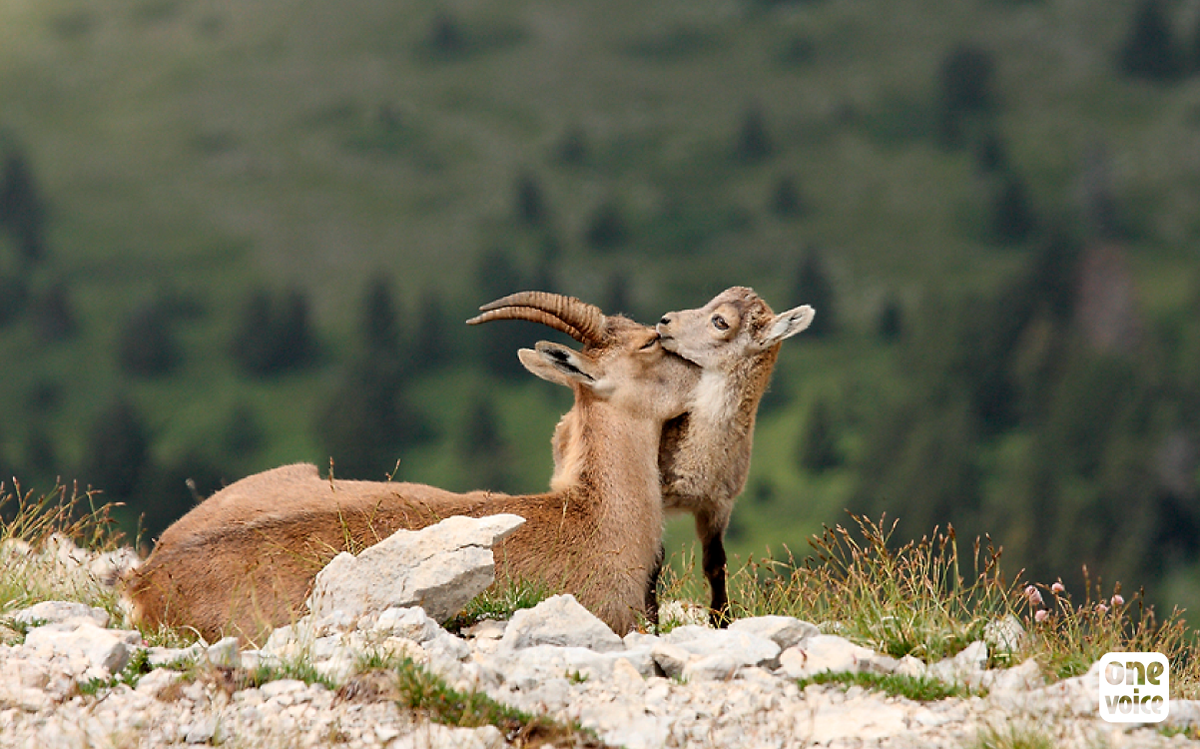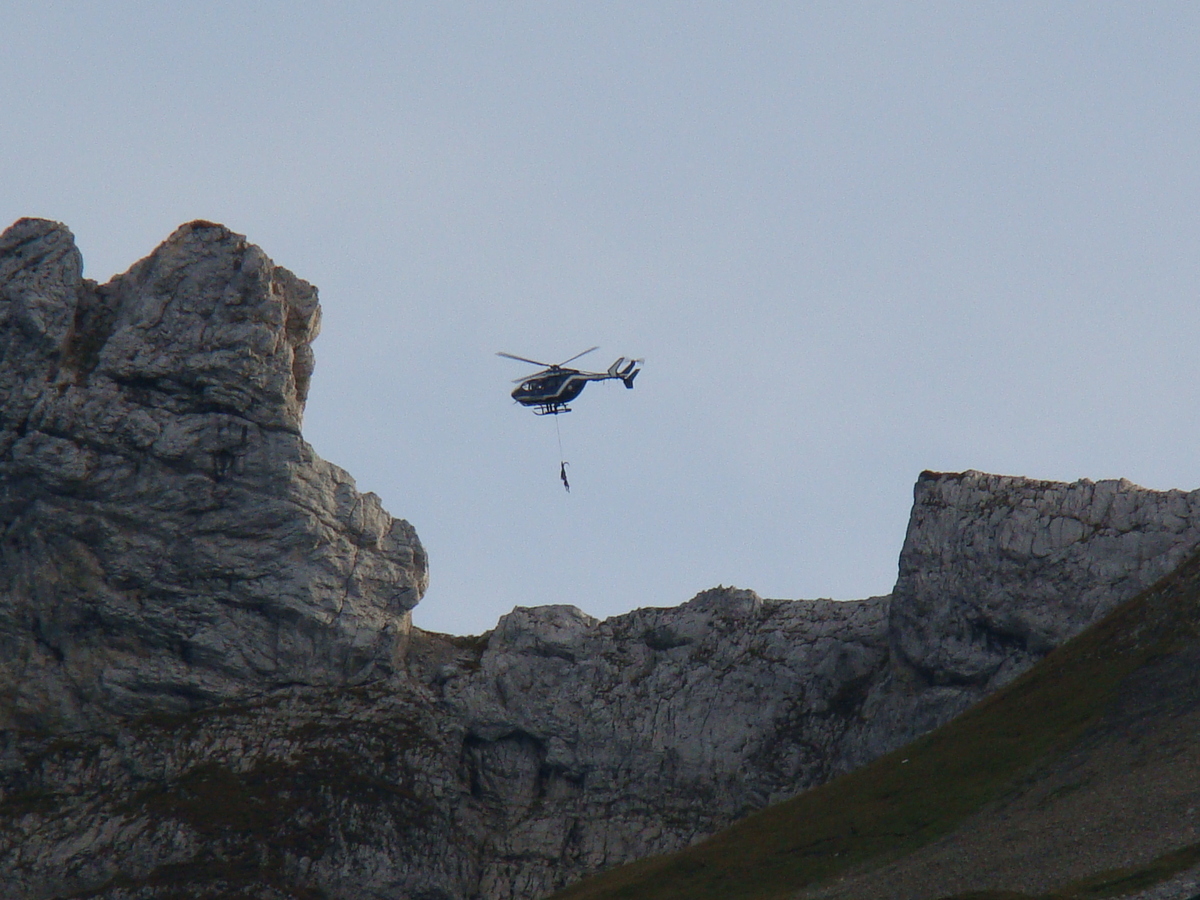

The ibex of Bargy: slaughtered for cheese?
One Voice is fighting to stop the massacre of the ibex of Bargy. The cruel slaughter that began in 2013 will not end Brucellosis! Neither ethical nor effective, it contributes to the spread of the disease.
August 2018
Under the pressure from the breeders, a new order threatens the ibex of Bargy. We filed an appeal before the State Council to request its annulment.
Present in France since prehistoric times, ibex (Capra Ibex) have almost disappeared under the pressure from hunting. Thanks to several reintroduction operations since the 1970s, their population is now estimated at around 10,000 individuals in the French Alps (2013 figure). Endangered species, the ibex is protected by the Berne Convention. But in the Bargy massif in Haute-Savoie, it seems that this does not matter … For them, One Voice multiplies legal remedies.
Brucellosis: from breeding to ibex …
Bargy is a region that produces famous cheeses. In April 2012, a case of brucellosis in a dairy farm in Grand-Bornand (department 74) blamed wild ungulates frequenting the proximity of the pastures. It was the end of peace for ibexes. Recall that brucellosis is a zoonosis, that is to say a disease that can be transmitted from animals to humans and vice versa. It is also a disease that is not naturally present in wild ungulates: the contaminated chamois, observed in the Hautes-Alpes and Savoy in the 1980/2000, have all been inalpine pastures with sheep flocks, goats or infected cattle … And in the ibex, the first cases were only described in 2012.
The massacre of ibex, why?
Yielding to the pressure from cheese makers frightened by the health risk (and the commercial risk), and despite the good sense, the Prefect of Haute-Savoie has decided to eradicate almost all the ibex from the massif. Such a brutal and counterproductive measure, which runs counter to the convergent scientific opinions, issued by the National Agency for Food Safety, Environment and Labour (ANSES), the Scientific Council of the National Office for Hunting and Wildlife (ONCFS) and the National Council for the Protection of Nature (CNPN).
An operation as bloody as it is inefficient
During a vast bloody operation, with the help of gendarmes and helicopters, 233 ibexes were killed in three days in October 2013, and at least 70, including yearlings, two years later. Hikers, terrified witnesses, have testified to these massacres, having seen the bodies of ibexes evacuated by the air … It must be said that, following the first session of slaughter, targeted at individuals over 5 years, the overall situation has not improved and has even worsened among young animals! The rate of young infected individuals has increased from 10% to 50%…

The massacre of ibexes is not only a scandal, it is an aberration
The slaughter of all the ibexes is illusory, not to mention ethics, it is impossible to eradicate completely a non-enclosed population! From a practical point of view, the measure is likely to push them back to the neighbouring massifs the sick individuals who have escaped the shootings and thus contributed to the spread of the disease…
The action of One Voice for the end of the killing of the ibex of Bargy
Since the beginning of these massacres, One Voice has multiplied its actions. We have denounced this slaughter, photos in support, so that the public measures the horror of which the mountains are the theatre, and alerted to each public consultation.
Thanks to our work, together with a coalition of associations, we managed to prevent the plan to eradicate the species. But that was obviously not enough, no slaughter is acceptable. Also, we systematically attack the decrees that authorize them by legal actions.
The nightmare must stop, real ethical and effective measures must be put in place for peace to return to the Bargy!
Photos: ©EricBreyton